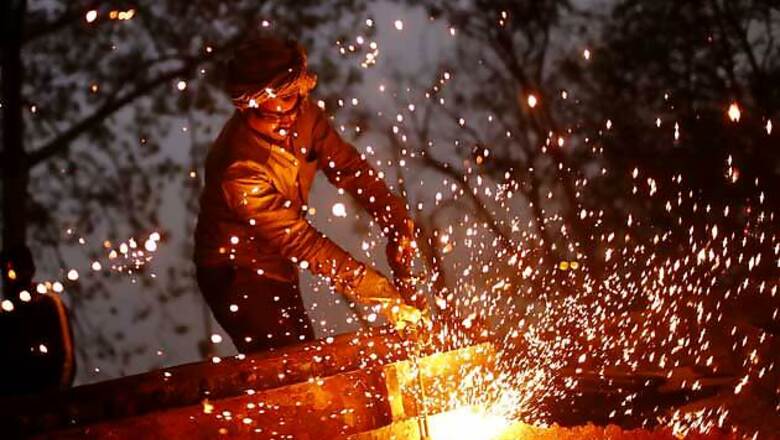
views
Mumbai: India's real growth remains "very elusive" and markets have "resigned" to a slower recovery, while foreign investors are still optimistic for want of alternatives, British major Standard Chartered has said. "A lot of macro parameters have improved for sure, but growth has been very elusive. The high new GDP numbers are puzzling. But on other active parameters, things still look to be challenging," Standard Chartered Managing Director and Regional Research Head for South Asia Samiran Chakraborty said.
"The way we thought that growth will come back, it now appears that both the markets and analysts have resigned to the fact that the recovery will be much slower than anticipated," he added.
Foreign investors are very optimistic, he said while attributing this to lack of alternatives and also their ability to see-through advantages the country has in the medium term, Chakraborty said, drawing from his recently concluded tour of investor meetings across the world.
A revision in the computation of GDP growth showed growth of 6.9 per cent in FY 2014 from the earlier 5 per cent. The government has been saying the country is the fastest growing economy in the world and is on course to clip at 7.4 per cent in the just-concluded fiscal. However, factory output data, core sector numbers and exports and imports are all heading south.
On optimism of foreign investors, Chakraborty said: "Part of the reason is the so-called TINA factor (there is no alternative). But part of it is also the fact that sitting 10,000 km away, they can actually take a slightly medium-term perspective on us which is tougher for us sitting right here." Investors derive optimism from factors like changes in the monetary policy framework which makes the Reserve Bank an inflation-targeting central bank, he said, adding that they also get the comfort that current account deficit is under control, among others.
When asked about what are the concerns being voiced by international investors, Chakraborty said one big concern is how fast a democracy can work. "One of the concerns is that how fast can a democracy work, at what point of time will the government be forced to turn more populist, can reforms continue for long?" he said.
He further said that stiff political opposition, even from within the ruling front, to the issues being sought to be incorporated in the Land Acquisition Act or minimum support prices or rise in rural wages are things which investors are watching.
Earlier in February HDFC Chairman Deepak Parekh, known as a guiding voice of the Indian industry, had said: "I think there is still a lot of optimism among the people and among the industrialists and entrepreneurs that the Modi government will be good for business, for progress, for reducing corruption. They think this government means business on all these fronts."
"However, after nine months, there is a little bit of impatience creeping in as to why no changes are happening and why this is taking so long having effect on the ground. The optimism is there but it is not translating into revenues. Any industry you see, when there is a lot of optimism, he growth should be faster," Parekh had said.
On the new GDP numbers, Chakraborty, said the analyst community does not take the new GDP numbers too seriously, especially when other indicators like corporate earnings, factory output etc continue to remain subdued.
He said that they are eagerly awaiting back data from the CSO of previous years' growth computed in the same way, which is expected in May. In the interim, Chakraborty said he will depend on the subdued corporate earnings to gauge the health of the economy.
Citing the example of China, where analysts have created composite indices in the absence of credible government data, Chakraborty said the same may come true here as well if the credibility is not restored in the official numbers.















Comments
0 comment